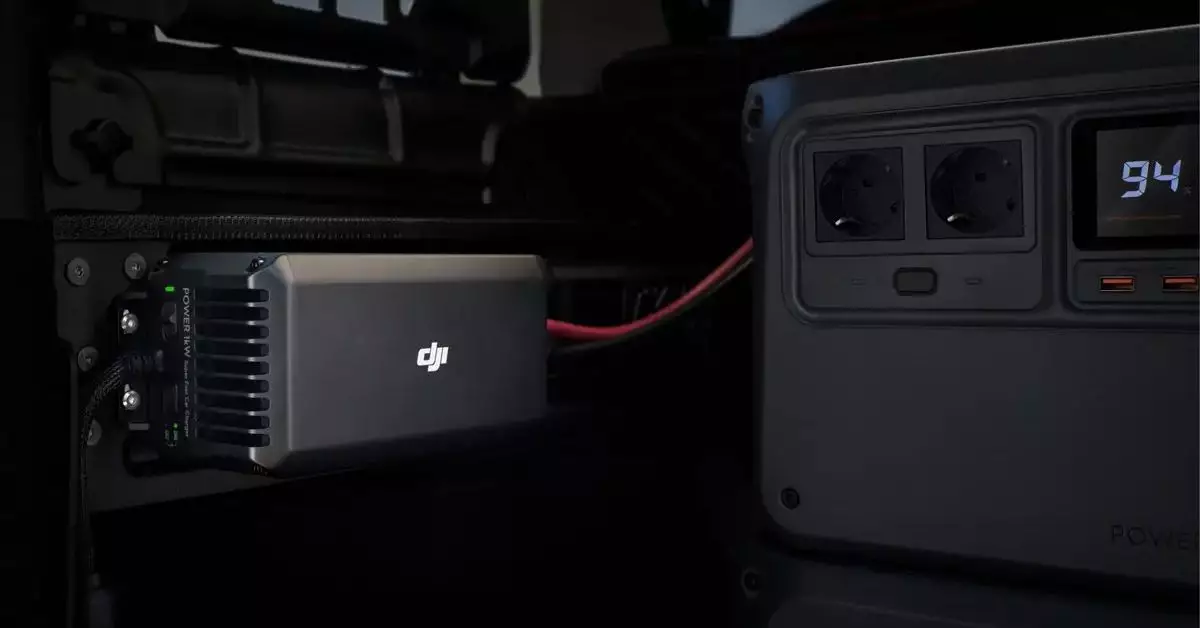In an era where digital nomadism is becoming increasingly mainstream, the demand for efficient and portable energy solutions is at an all-time high. DJI, a company already well-known for its expertise in drones and imaging technology, has capitalized on this trend with the launch of its new Power 1kW Super Fast Car Charger. Priced at $299 in the US and €269 in Europe, this device represents a significant advancement in mobile power generation, allowing users to charge DJI’s expanding range of portable batteries directly from their vehicle’s alternator while on the go.
This innovative product appeals to those who rely heavily on power stations for their remote work and leisure activities, essentially providing a bridge between the portability of modern technology and the necessity for consistent energy supply. The Power 1kW Charger employs a rather straightforward installation process: it connects to a car’s battery through a 5-meter fused cable, transforming idle engine time into productive charging. This feature is not just a convenience; it is a game-changer for individuals who work remotely and live out of vehicles.
One of the significant selling points of the Power 1kW is its rapid charging capabilities. According to the manufacturer’s claims, it can fully charge a DJI Power 1000’s 1024Wh battery in just over an hour under optimal conditions with a charging output of 1000W. However, it is crucial to note that the charger, initially limited to a 500W output, requires an additional $25 dongle to unlock its full potential. While DJI is currently offering this dongle for free with new purchases, the necessity of a subsequent purchase raises questions about transparency and overall user experience.
This seemingly straightforward hoisting of a “free gift” hides a deeper complexity. Users whose cars are not equipped with a high-capacity alternator may find themselves unable to utilize this powerful feature, which could lead to frustration and disappointment. Furthermore, DJI’s switch to requiring a specialized dongle to maximize charger performance may alienate potential customers who prefer more reliable, all-in-one solutions for their charging needs.
Competitors like EcoFlow and Bluetti are also innovating in this space. EcoFlow has introduced an 800W alternator charger, while Bluetti’s AC500 boasts a 560W output capability. What distinguishes DJI’s offering is its proprietary design tailored specifically for its own power stations. This tailored approach, while beneficial for DJI’s customers, does lead to concerns over interoperability with other brands—a common desire for users who expect versatility in their tech purchases.
DJI’s Power 1kW Super Fast Car Charger reflects the growing need for efficient and mobile energy solutions in our increasingly nomadic lifestyles. It embodies innovation yet showcases growing pains in user adaptability and market competition. While the product is undeniably powerful, its usability is contingent on several factors that potential users must carefully consider. Moving forward, DJI, along with its competitors, will need to balance proprietary designs with universal functionality to garner the trust and loyalty of a demanding consumer base.

